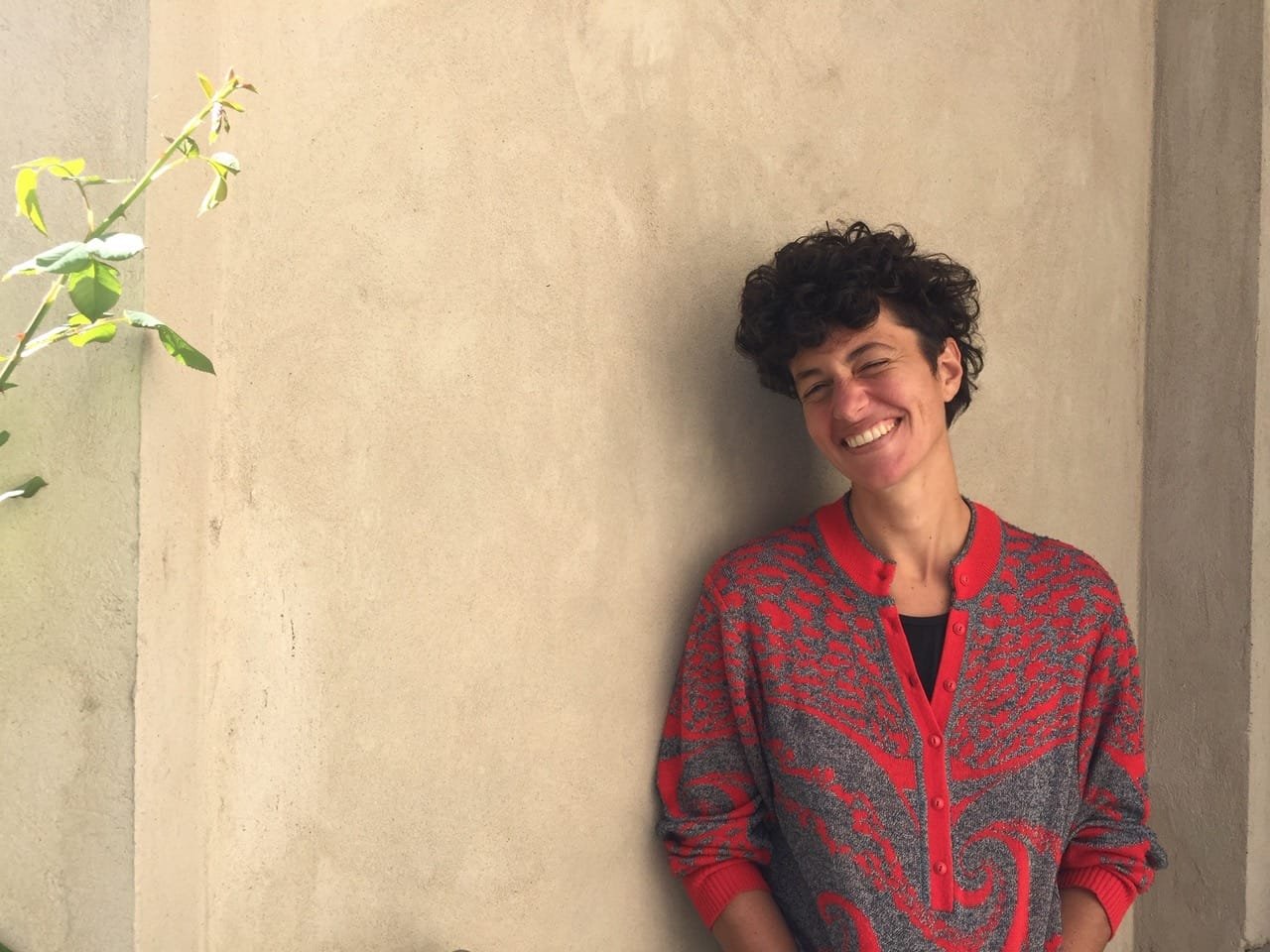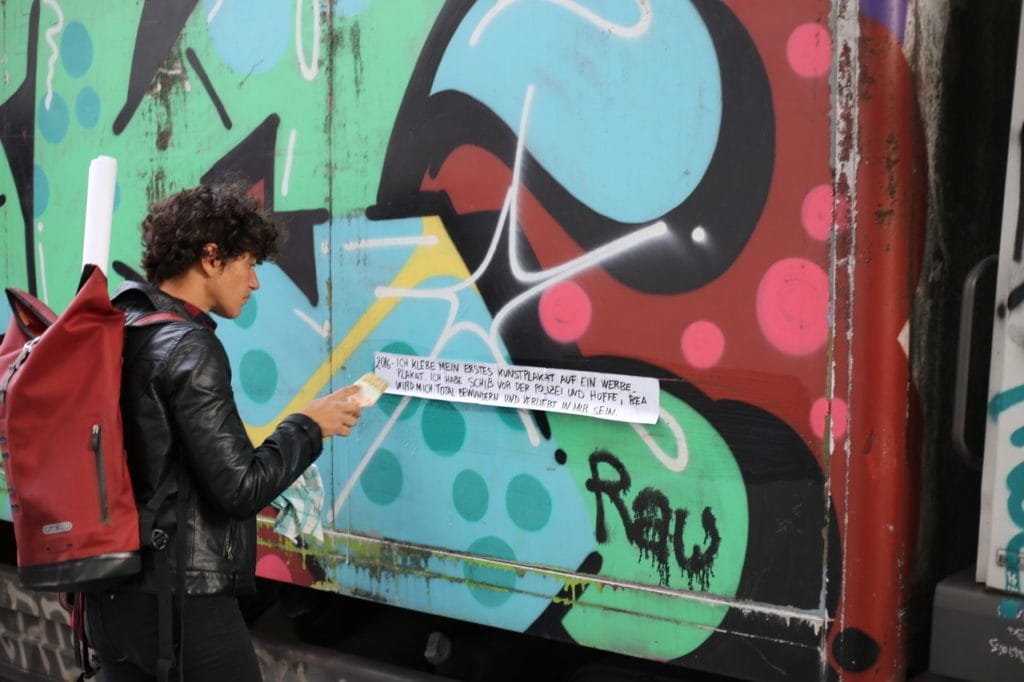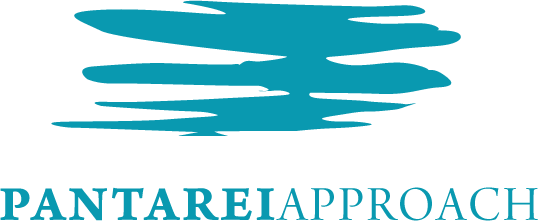
Diana Sirianni, Pantarei Approach Practitioner
THE RIPPLE EFFECT
Most interviews start with some background information on the person. But with Diana, understanding who she is is made clear by what she does. At first, the Pantarei Approach as a type of somatic bodywork, and the concept of activism seem like very different topics. Listening to Diana talk about her passion, you easily start to see how they relate.
She explains that activism can be to go to a demonstration, or go to a coal mine, or glue yourself to parliament. But the type of activism she wants to talk about she calls ‘creative resilience.’ She says that education in the widest sense, is part of activism. It creates a solid base for sustainable long-term processes, which lead to a deep change in society. “Otherwise the risk is you just change the surface,” she states. Immediately, similarities and connections appear, as the Pantarei Approach seeks to educate and support clients looking for long-term change.
Diana studied philosophy and aesthetics, which contribute to her structural approach to reading reality through her intellect and her senses. This clearly shows by how she explains somatic bodywork as an individual and collective practice.

When did Pantarei and activism start to go together for you?
“I had the luck of meeting another practitioner in my training who was very passionate, knowledgeable and sensible around topics of social transformation, and the relationship between private and political. We had an intense exchange that encouraged me to trust in the possibility of reading this work through a political lens. Not only supporting people individually, but there is something collective that can happen if this practice becomes widespread, and if it at the same time includes an awareness about structures of oppression.”
“What amazed me was the incredible capability of the Pantarei Approach to unfold the power we have in ourselves. And to unfold it in an individually tailored way. Within individuality is the possibility of endless creativity. There is something deeply revolutionary in Pantarei. It helps us find balance in our life by suspending the assumption about how things are ‘supposed to be.’ It was very easy to try and imagine if everyone went through this work, the world would look very different.”
What kind of activism are you doing?
“I love political work that happens in intimate or private spaces. This is the legacy of feminism discourse. The private is political. I really appreciate what Pantarei Approach co-director Vered Manasse said, ‘We think our emotions are private, but they’re not.’ We influence each other. When this is acknowledged, it is already healing because it breaks the isolation. We realize it’s not our fault when we feel a certain way.”

photo credits: Tara
Transformative Processes
What does Body Politics mean?
“It’s a term used in the context of practices and theories that connect embodiment and social justice. It’s about how every experience we have is individual but also collective. We are part of a system. Our personal and social experience and the hurt connected to it show in our body, in the way how we feel within it. On the level of our body we can regain dignity and power again. Through somatic bodywork we learn to respect ourselves. And with this respect we understand our boundaries individually but also are able to say no to things on a larger scale. Body Politics means to consider the body as something where abstract topics that connect to our identities, become visible in the body. In the body, transformation can happen performative, on a pre-verbal or non-verbal level, deep down.”
How does Pantarei Approach relate to activism?
“First of all, as a practitioner, I try to hold an awareness of specific mechanisms in our society that stop people from growing and fully thriving. This happens in many ways in our society. Like classism, or sexism, or racism. I have these in the back of my mind so I understand a client’s struggles are not only their struggles but are everyone’s struggle. This becomes part of my intention. So, for example, I can support men to reclaim feelings that they weren’t able to feel and express in their process of socialization. Oppression makes us learn to shrink or become smaller, until this state becomes our second nature. With bodywork, we can undo our internalized oppression.”
“I worked with a Kurdish female client. An amazing powerful woman, artist and activist. In her life, she had to become very strong in order to show her independence from traditional structures she didn’t agree with. She didn’t allow herself to show any vulnerability, because this might make her feel unprotected. In a session with her, we found space for these neglected areas and she was able to finally cry. But she said it was not only her tears, but she was crying for generations of women who couldn’t. We were working on something wider than just her. And this is for me a form of activism already.”
Diana explains in a Pantarei session, you can hold space for a client and all the aspects of different identities they personally and politically relate to, and the variety of emotions connected to those.

The World Touches Back
What types of people do you support?
“I work a lot with queer people that struggle with feelings of shame or exclusion or are not accepting themselves. Every identity has specific hurts, plus each person has specific pains. But knowing what these identities carry structurally help me to see the person even more. It adds to knowledge of their uniqueness.”
“I work with artists also. I’m an artist myself. I struggled for years with feelings of isolation and internalized competition. This relates to strong judgements of yourself and others, of not being good enough. So I started to organize groups of artists, that through a specific framework, can be resources for each other— shifting the focus to a more empowering direction. I believe art is revolutionary at its core. Letting creativity and expression be at the center of our lives is very powerful. As soon as a person has support to do that, they have a greater capacity to contribute to those around us. It’s the ripple effect. Sometimes artists ask, ‘Is it egoistic that I do my work?’ But actually, art is a form of listening —to know how the world touches you.”
How else do you support as a practitioner?
“In the new social movements like Extinction Rebellion that fight for climate justice, there is a growing awareness for emotional sustainability. Activists tend to burn out. They keep giving and then they have to withdraw because of exhaustion. There is this topic of regenerative culture. How can activism not just be what you give, but it is something that nourishes you? This is what really interests me! I’m really interested in creating a network of self-supportive structures where activists can listen to each other and build close relationships. The experiences they have as activists bring up old feelings, like discouragement, hopelessness or powerlessness. I want to create a space where people can allow these emotions in a context that is empowering. So people’s mental health can be given space to heal while they are together relating to topics they care about. It’s a win-win.”

photo credits: unknown
In general, how can the Pantarei Approach support activism?
“I think many times activism is understood in the sense that we should add to what we are already doing in order to make the world a better place. In this process we stop being in a position of expansion and feel like we have to overwhelm ourselves. What is great about the Pantarei Approach is that it keeps you in the center of what you do.”
“We can’t do everything in the world that we want to do, or that should be done. We do best the things that connect deeply to who we are and the things that we love the most. I think once we enlarge our vision of the world beyond our perspective and our privileges, our focus changes with us and we start to include other things which make us grow and feel more connected. We keep doing what we love— we keep being at the center, but our universe is wider.”
Contact Diana: si***********@***il.com
By Mike O’Connor 


